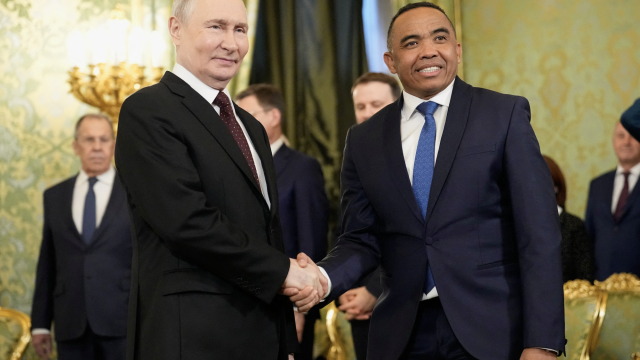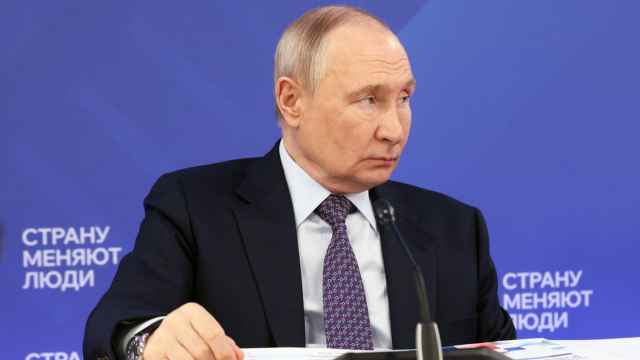Russian military aircraft are posing a threat to civilian planes by turning off communications devices and failing to file flight plans, the U.S. Ambassador to NATO said on Monday.
Russia has stepped up flights near NATO's borders in 2013, the alliance says, coinciding with increased East-West tension over Russia's role in the Ukraine crisis. NATO aircraft have scrambled more than 400 times this year to intercept Russian aircraft, up 50 percent from the 2013 total.
U.S. Ambassador Douglas Lute said there had been "multiple incidents" where Russian military aircraft had not filed flight plans nor spoken to civilian air traffic controllers, and had turned off transponders that send information about the plane.
This made the planes virtually invisible to air traffic controllers, he told a news conference.
"These Russian actions are irresponsible, pose a threat to civilian aviation and demonstrate that Russia is flagrantly violating international norms," he said.
NATO Secretary General Jens Stoltenberg urged Russia to conduct the flights "in a more responsible way." Britain also voiced concern about Russian probing of its air space.
In late October, NATO said its aircraft tracked Russian strategic bombers over the Atlantic and Black Sea and sorties of fighters over the Baltic.
At sea, too, Russia has been more active, leading one NATO commander to draw comparisons with Cold War behavior. A squadron of Russian warships entered the English Channel on Friday.
Increased Russian assertiveness in the air and at sea has raised concern in NATO about the risks of miscalculation.
Military personnel from the 28-nation alliance and Russia are no longer so familiar with procedures and behavior that were standard during the Cold War, raising the risk of an accidental incident, one diplomat said.
A report last month by the European Leadership Network, a security think tank, cited an increase in incidents involving Russian and Western militaries, raising the risk of accidental military confrontation.
It said there had been a "close encounter" in March between a passenger plane taking off from Copenhagen and a Russian reconnaissance aircraft which did not transmit its position.
Douglas Barrie, an aerospace expert at the International Institute for Strategic Studies, a London think tank, said the higher Russian military profile partly reflected better funding after years in which a cash-starved air force did little because of inadequate training, fuel shortages and poor maintenance.
A Message from The Moscow Times:
Dear readers,
We are facing unprecedented challenges. Russia's Prosecutor General's Office has designated The Moscow Times as an "undesirable" organization, criminalizing our work and putting our staff at risk of prosecution. This follows our earlier unjust labeling as a "foreign agent."
These actions are direct attempts to silence independent journalism in Russia. The authorities claim our work "discredits the decisions of the Russian leadership." We see things differently: we strive to provide accurate, unbiased reporting on Russia.
We, the journalists of The Moscow Times, refuse to be silenced. But to continue our work, we need your help.
Your support, no matter how small, makes a world of difference. If you can, please support us monthly starting from just $2. It's quick to set up, and every contribution makes a significant impact.
By supporting The Moscow Times, you're defending open, independent journalism in the face of repression. Thank you for standing with us.
Remind me later.





